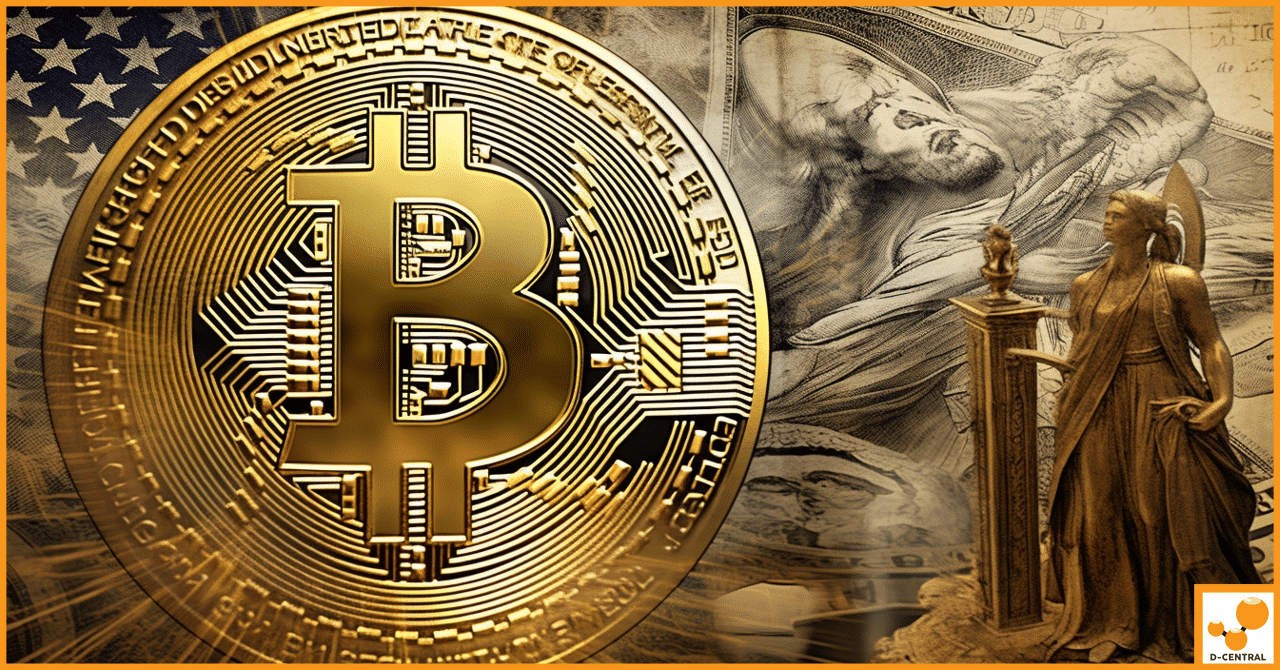
Understanding Bitcoin Block Solving: Techniques and Technologies
Discover the intricate process of Bitcoin mining, the crucial role of block solving, and the latest technological advancements reshaping the
4479 Desserte Nord Autoroute 440, Laval, QC H7P 6E2

In the world of digital finance, Bitcoin has emerged as a groundbreaking innovation. As the first decentralized cryptocurrency, it has redefined the concept of money and has become a significant player in the global financial ecosystem. Bitcoin operates on a technology called blockchain, a public ledger containing all transaction data from anyone who uses bitcoin. Transactions are added to “blocks” or the links of code that make up the chain, and each transaction must be recorded on a block.
However, the rise of Bitcoin has also sparked a heated debate on its regulation. Bitcoin’s decentralized nature – free from government oversight and interference – is one of its core appeals. Yet, this very feature has led to calls for regulation, with critics arguing that Bitcoin’s anonymity and lack of regulation facilitate illicit activities such as money laundering and tax evasion. On the other hand, proponents of Bitcoin argue that regulations would infringe on the privacy and autonomy that are foundational to the concept of cryptocurrencies.
This article delves into the complexities of Bitcoin, its connection to the First Amendment, and the ongoing debate surrounding its regulation.
Bitcoin, often described as a cryptocurrency, a virtual currency, or a digital currency, is a type of money that is completely virtual. It’s like an online version of cash. You can use it to buy products and services, but not many shops accept Bitcoin yet, and some countries have banned it altogether. However, some companies are beginning to see its potential and have started accepting Bitcoin, leading to a surge in its usage.
The technology that underpins Bitcoin is incredibly powerful. It’s based on a combination of blockchain and cryptography. Blockchain is a type of distributed ledger technology where each block contains a cryptographic hash of the previous block, a timestamp, and transaction data. This technology ensures that every transaction is transparent, making it nearly impossible to change or tamper with past transactions.
Cryptography, on the other hand, is a method of protecting information by transforming it into an unreadable format. Bitcoin uses a specific type of cryptography known as cryptographic hash functions, which are mathematical operations run on digital data. By comparing the computed “hash” (the output from execution of the algorithm) to a known and expected hash value, a person can determine the data’s integrity.
Bitcoin mining plays a crucial role in the Bitcoin network. It involves solving complex mathematical problems using high-powered computer equipment. The miner who solves the problem first adds a new block of transactions to the blockchain and is rewarded with a certain number of bitcoins. This process not only creates new bitcoins in circulation but also serves to verify and validate transactions on the network, enhancing the security and reliability of the Bitcoin system.
Understanding these fundamental aspects of Bitcoin is key to comprehending its potential impact and the debates surrounding its regulation.
The First Amendment to the United States Constitution is a cornerstone of American civil liberties. It prohibits any laws that infringe on the freedom of speech, the freedom of the press, or the right of the people to peaceably assemble and petition the government. The relevance of the First Amendment to Bitcoin lies in the interpretation of Bitcoin transactions as a form of speech.
The argument for Bitcoin as a form of speech and text is rooted in the nature of its operation. Bitcoin transactions are essentially messages transmitted across a network. These messages, which are text-based, contain information about the sender, receiver, and the amount of Bitcoin being transferred. The transmission of these messages is a form of communication, and thus, can be considered a form of speech protected under the First Amendment.
This argument is not without precedent. In the case of Bernstein v. US Department of Justice, it was established that code is speech and is protected by the First Amendment. Daniel J. Bernstein, a mathematician and cryptographer, challenged the U.S. government’s regulations on the export of cryptography software, arguing that these regulations infringed on his First Amendment rights. The Ninth Circuit Court of Appeals ruled in Bernstein’s favor, establishing that software code falls within the purview of speech protected by the First Amendment.
This ruling has significant implications for Bitcoin. If Bitcoin transactions, which are essentially lines of code, are considered speech, then they are protected by the First Amendment. This means that any regulations that seek to control or limit Bitcoin transactions could potentially be seen as an infringement on the freedom of speech. This perspective adds a complex layer to the ongoing debate surrounding Bitcoin regulation.
The regulatory landscape for Bitcoin in the U.S. is complex and evolving. Currently, Bitcoin is classified as a commodity by the Commodity Futures Trading Commission (CFTC), while the Internal Revenue Service (IRS) treats it as property for tax purposes. However, there is no comprehensive federal regulation governing Bitcoin, and state laws vary widely. Some states have embraced Bitcoin and blockchain technology, while others have imposed strict regulations.
The arguments for Bitcoin regulation often center around consumer protection and the prevention of illegal activities. Proponents of regulation argue that oversight is necessary to protect consumers from fraud and market manipulation. They also contend that regulation could help prevent Bitcoin from being used for illegal activities such as money laundering or financing terrorism.
On the other hand, opponents of regulation argue that it could stifle innovation and infringe on privacy rights. They assert that the decentralized and anonymous nature of Bitcoin is one of its main advantages, and regulation could undermine these features. They also argue that the current legal framework is sufficient to address any illegal activities involving Bitcoin.
The potential implications of Bitcoin regulation on the crypto industry and the broader economy are significant. On one hand, clear and consistent regulation could provide a level of legitimacy to Bitcoin, potentially encouraging more widespread adoption and integration into the mainstream financial system. On the other hand, overly restrictive regulation could stifle the growth of the burgeoning crypto industry and limit the potential economic benefits of Bitcoin and blockchain technology. The challenge for policymakers is to strike a balance between these competing considerations.
Bitcoin’s influence on the global economy is becoming increasingly significant, particularly in the realm of eCommerce. As a decentralized and borderless currency, Bitcoin allows for seamless international transactions, bypassing the need for currency conversion and the associated fees. This can potentially drive economic growth by facilitating global trade and making it more accessible, especially for small and medium-sized businesses.
Moreover, Bitcoin holds immense potential for the unbanked population – individuals who do not have access to traditional banking services. With a basic internet connection, anyone can create a Bitcoin wallet and participate in the global economy. This could empower millions of people in developing countries by providing them with financial autonomy and the ability to save, invest, and transact independently.
Lastly, Bitcoin has the potential to transform the financial industry. Its underlying technology, blockchain, provides a transparent, secure, and efficient method of transferring assets. This could revolutionize various sectors of the financial industry, from remittances and cross-border payments to securities settlement and trade finance. It could also lead to the development of new financial products and services, fostering innovation and competition in the industry.
However, it’s important to note that the realization of these potentials hinges on various factors, including regulatory developments, technological advancements, and market acceptance of Bitcoin. As such, while the future of Bitcoin holds promise, it is also fraught with uncertainty.
In this article, we have delved into the intricacies of Bitcoin, its connection to the First Amendment, and the ongoing debate surrounding its regulation. We’ve explored the nature of Bitcoin as a form of digital currency, the technology that underpins it, and the role of Bitcoin mining. We’ve also examined the argument for Bitcoin as a form of speech and text, protected under the First Amendment, and looked at case examples that support this argument.
The debate on Bitcoin regulation is complex and multifaceted, with compelling arguments on both sides. While some advocate for regulation as a means of consumer protection and prevention of illegal activities, others argue that regulation could stifle innovation and infringe on privacy rights. The implications of Bitcoin regulation on the crypto industry and the broader economy are significant and could shape the future of digital finance.
Furthermore, we’ve discussed the role of Bitcoin in the global economy, its potential to drive economic growth, its impact on the unbanked population, and its potential to transform the financial industry.
As we look to the future, it’s clear that Bitcoin and its regulatory landscape in the U.S. will continue to evolve. The challenge for policymakers will be to strike a balance between fostering innovation and ensuring consumer protection. Regardless of the path taken, the impact of Bitcoin on the global economy and the financial industry is likely to be profound. As we navigate this new digital frontier, the conversation around Bitcoin and its regulation will undoubtedly continue to be a topic of great interest and importance.
Question: What is Bitcoin and how does it work?
Answer: Bitcoin is a digital currency that operates on a technology called blockchain. It is decentralized and allows for seamless international transactions, bypassing the need for currency conversion and the associated fees.
Question: How does the First Amendment relate to Bitcoin?
Answer: The First Amendment to the United States Constitution protects the freedom of speech. Bitcoin transactions, which are essentially lines of code or messages, can be considered a form of speech and thus, are protected under the First Amendment.
Question: What is the current regulatory landscape for Bitcoin in the U.S.?
Answer: The regulatory landscape for Bitcoin in the U.S. is complex and evolving. Currently, Bitcoin is classified as a commodity by the Commodity Futures Trading Commission (CFTC), while the Internal Revenue Service (IRS) treats it as property for tax purposes.
Question: What is the potential impact of Bitcoin on the global economy?
Answer: Bitcoin’s influence on the global economy is becoming increasingly significant, particularly in the realm of eCommerce. It also holds immense potential for the unbanked population and has the potential to transform the financial industry.
DISCLAIMER: D-Central Technologies and its associated content, including this blog, do not serve as financial advisors or official investment advisors. The insights and opinions shared here or by any guests featured in our content are provided purely for informational and educational purposes. Such communications should not be interpreted as financial, investment, legal, tax, or any form of specific advice. We are committed to advancing the knowledge and understanding of Bitcoin and its potential impact on society. However, we urge our community to proceed with caution and informed judgment in all related endeavors.
Related Posts

Discover the intricate process of Bitcoin mining, the crucial role of block solving, and the latest technological advancements reshaping the

In the dynamic world of cryptocurrency mining, Application-Specific Integrated Circuit (ASIC) miners have emerged as pivotal tools for anyone serious

In the dynamic world of Bitcoin, the hash rate currently stands at an impressive 461.54 EH/s, a testament to the